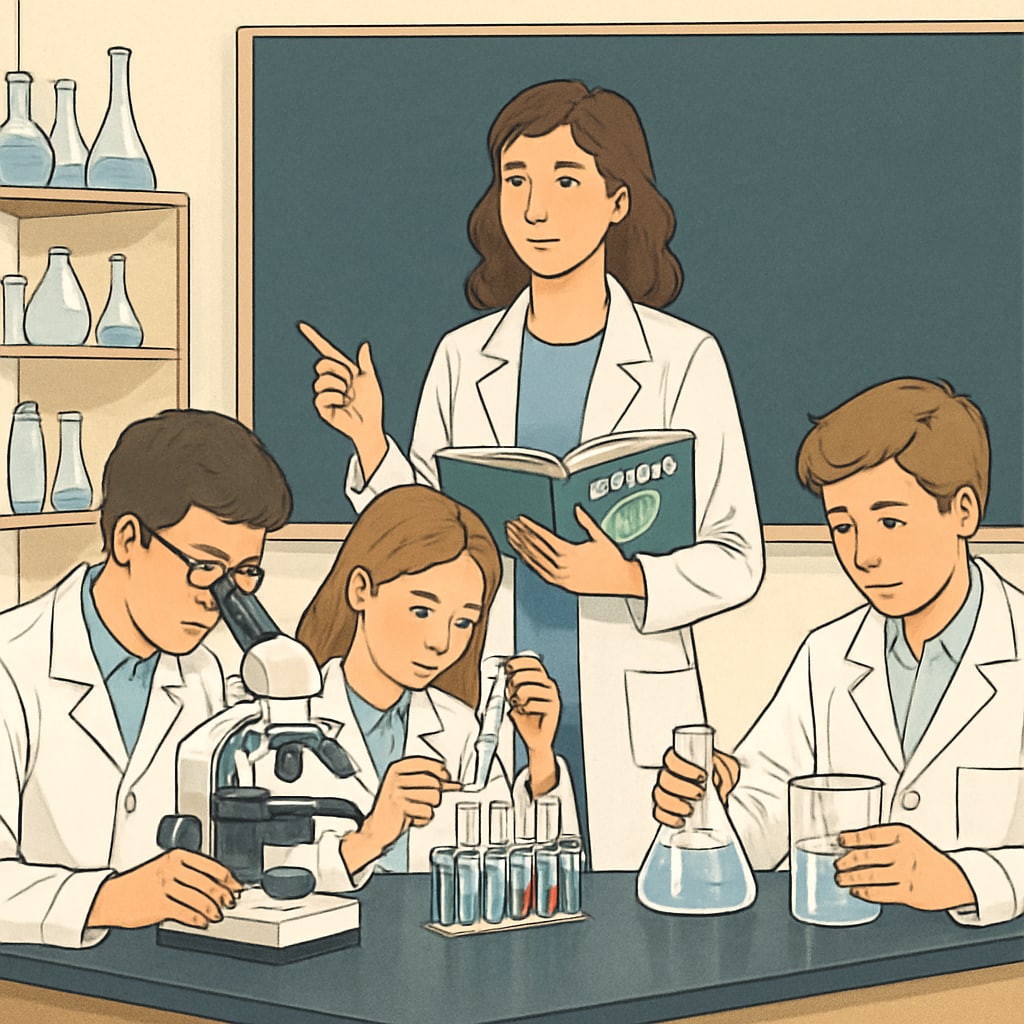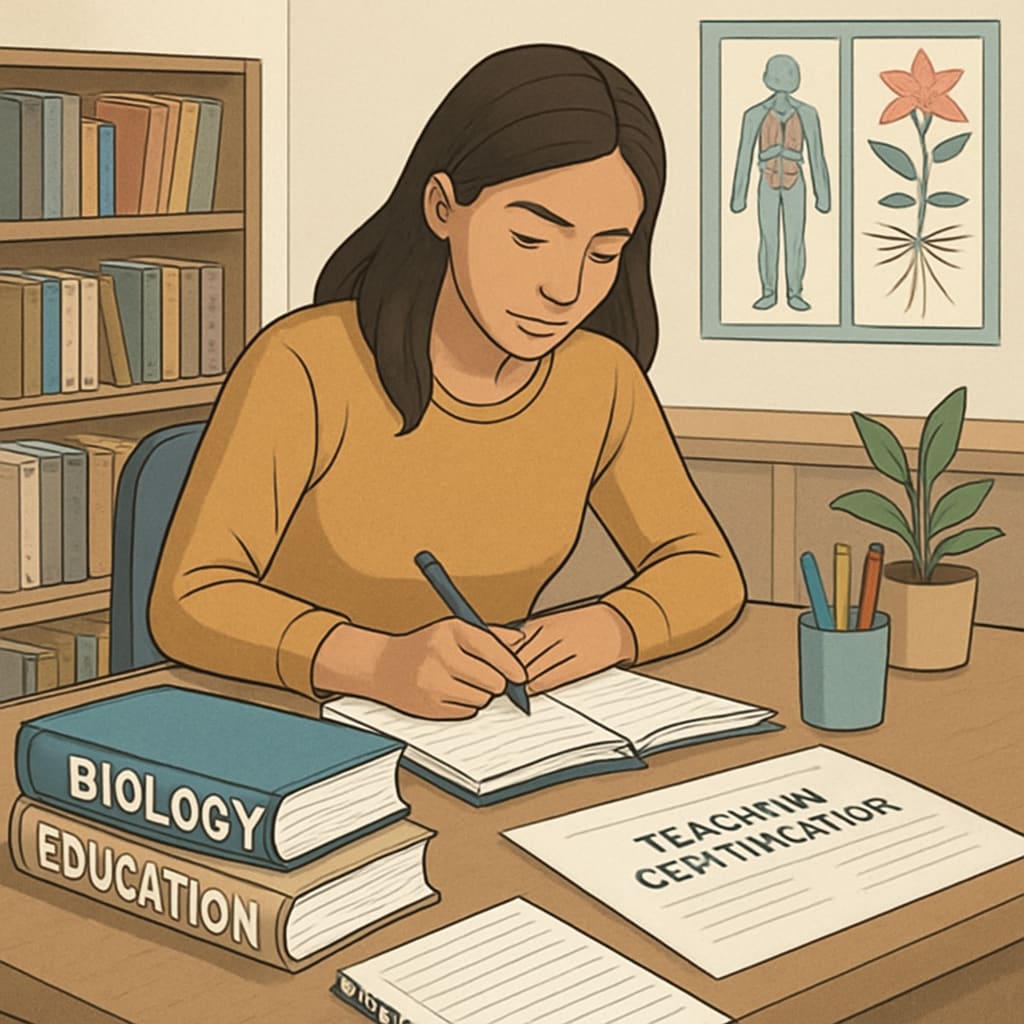Transitioning from a biology background to pursuing a master’s in education can be an exciting and meaningful academic shift. This journey involves a unique blend of leveraging scientific expertise while developing pedagogical knowledge. For biology graduates passionate about teaching and shaping young minds, this transition offers both challenges and opportunities. By carefully navigating the academic and professional hurdles, aspiring educators can redefine their careers successfully. This article explores the feasibility of this transition, analyzes potential challenges, and provides actionable strategies for a smooth academic conversion.
Why Transition from Biology to Education?
Biology graduates often possess a deep understanding of scientific concepts, critical thinking, and analytical skills. These attributes align well with the demands of education, especially in STEM (Science, Technology, Engineering, and Mathematics) fields. Transitioning to education allows biology professionals to share their expertise with younger generations while addressing the growing need for STEM educators globally. In addition, a career in education offers stability, personal fulfillment, and the opportunity to make a lasting societal impact.
For example, the K-12 education system is consistently seeking qualified teachers who can inspire students in science-related subjects. Biology graduates bring subject-matter expertise that enriches the curriculum, encouraging students to pursue careers in science and technology. As a result, this transition not only benefits individual educators but also contributes to the broader educational landscape.

Challenges in Switching from Biology to Education
While the transition from biology to a master’s in education is feasible, it is not without its challenges. One of the primary obstacles is adapting to the pedagogical frameworks and methodologies that differ significantly from scientific research. Unlike biology, which often emphasizes technical precision and experimentation, education focuses on communication, empathy, and understanding diverse learning needs.
Additional challenges may include:
- Fulfilling Prerequisites: Many education programs require foundational courses in pedagogy, psychology, or classroom management, which may be unfamiliar to biology graduates.
- Certification Requirements: Transitioning to teaching often involves obtaining teaching licenses or certifications that vary by region.
- Time and Financial Investment: Pursuing a master’s degree requires both time and financial resources, which can be a concern for professionals considering a career shift.
However, with proper planning and support, these challenges can be effectively managed, paving the way for a fulfilling career in education.

Strategies for a Successful Transition
To ensure a successful transition from biology to education, it is essential to approach the process strategically. Here are some practical tips:
- Research Education Programs: Look for master’s programs that value interdisciplinary backgrounds and offer flexibility for students transitioning from other fields.
- Gain Practical Experience: Volunteer at schools, tutor students, or participate in teaching assistantships to understand classroom dynamics.
- Leverage Transferable Skills: Highlight analytical thinking, research skills, and subject expertise when applying to education programs or teaching positions.
- Network with Educators: Connect with teachers and education professionals to gain insights and mentorship opportunities.
- Prepare for Certification: Familiarize yourself with the licensing process in your region and plan accordingly to meet the requirements.
By taking these steps, biology graduates can build a strong foundation for their journey into the education field.
The Broader Impact of This Transition
The transition from biology to education is not just an individual career change; it holds broader significance for society. By bringing scientific expertise into the classroom, biology graduates can inspire the next generation of scientists, researchers, and innovators. Furthermore, this shift addresses the critical shortage of qualified STEM educators, contributing to the development of a more scientifically literate society.
For instance, educators with a biology background can introduce innovative teaching methods, such as hands-on experiments and interdisciplinary learning, to make science more accessible and engaging for students. This approach not only enhances student outcomes but also fosters a lifelong interest in science and technology.
In conclusion, transitioning from a biology background to a master’s in education is a rewarding academic and professional endeavor. By embracing the challenges and leveraging their unique skill sets, biology graduates can make a meaningful impact in the field of education while achieving personal and professional fulfillment.
Readability guidance: This article maintains concise paragraphs, incorporates lists for clarity, and uses transition words to ensure a smooth reading experience. The focus remains on actionable insights and practical advice, making it accessible to a broad audience.


